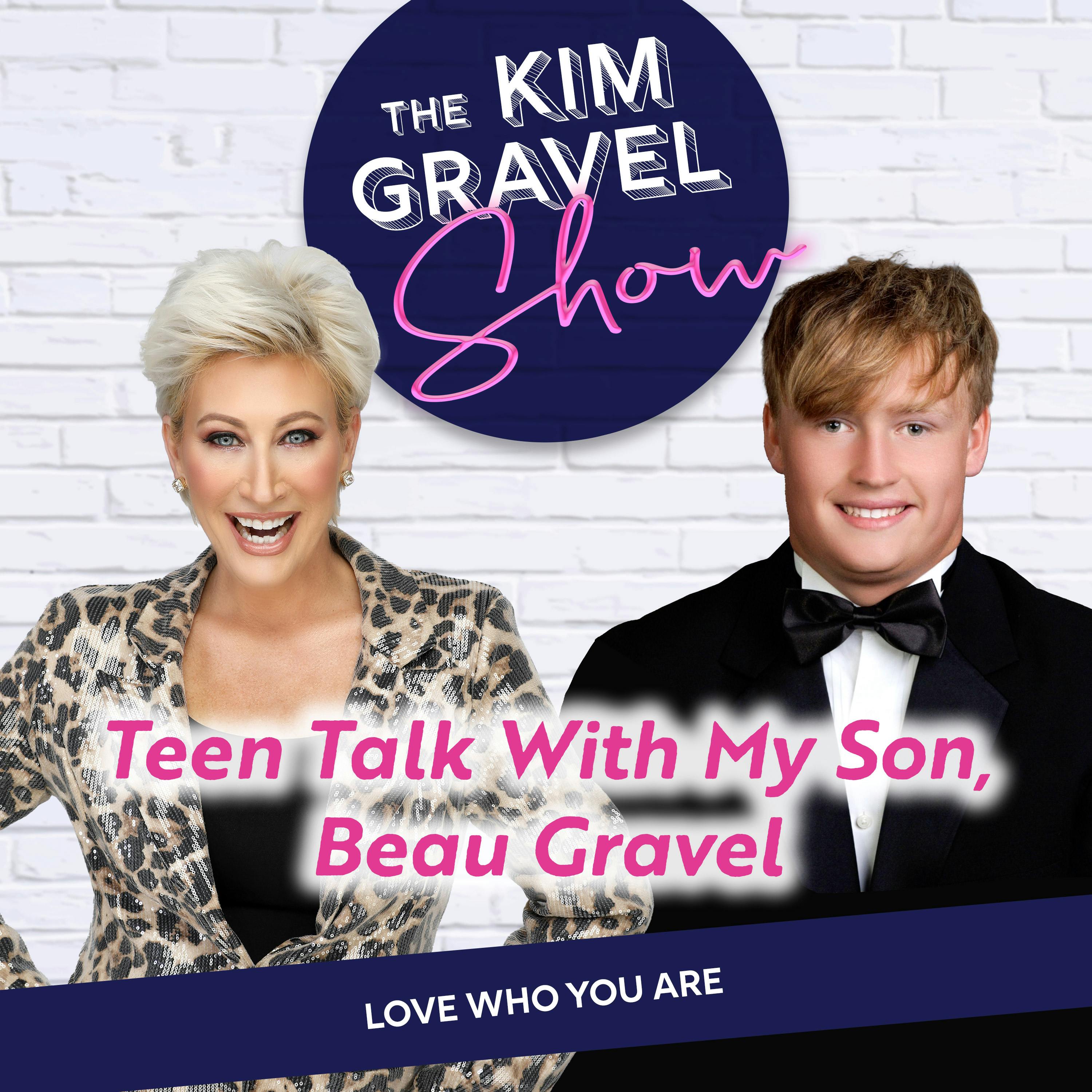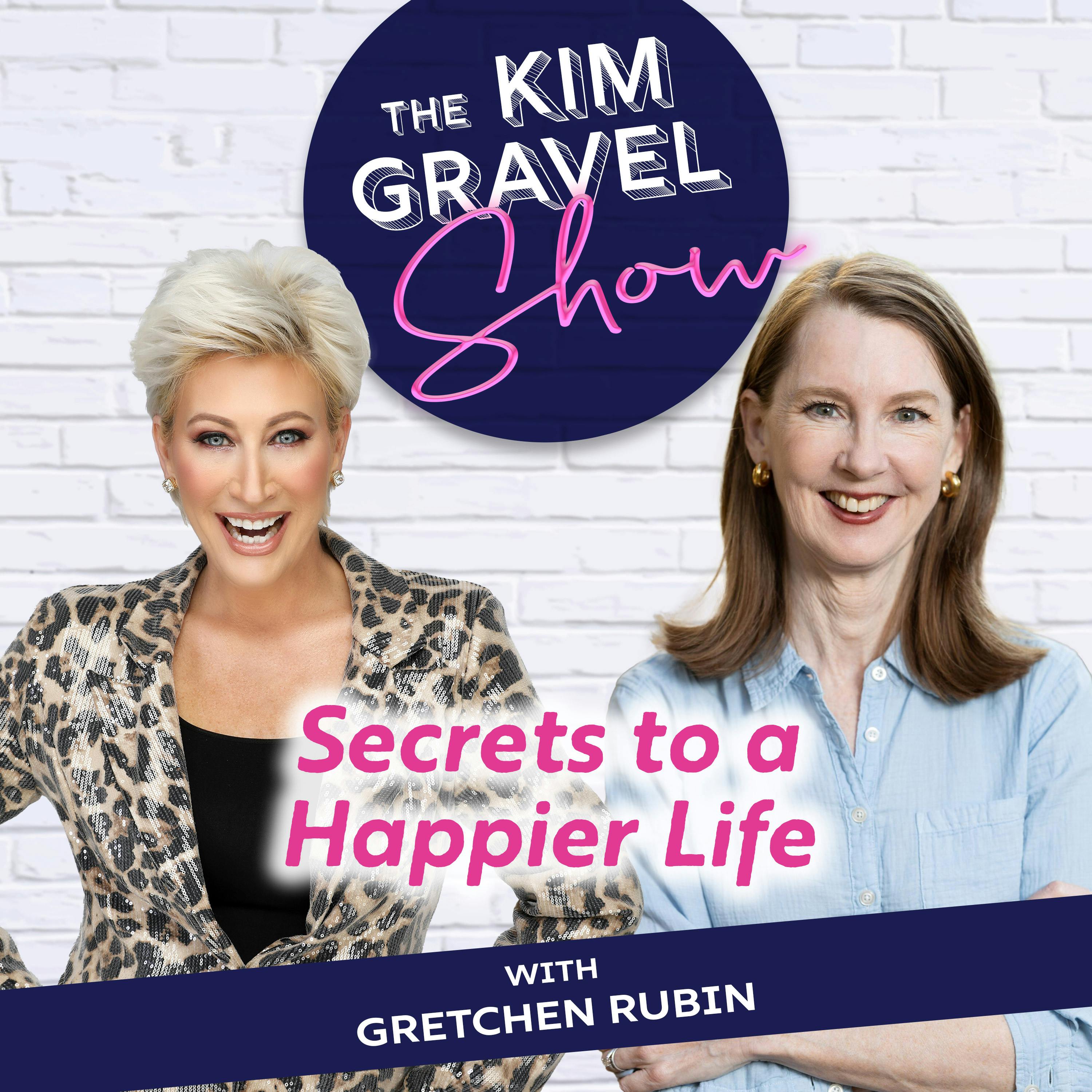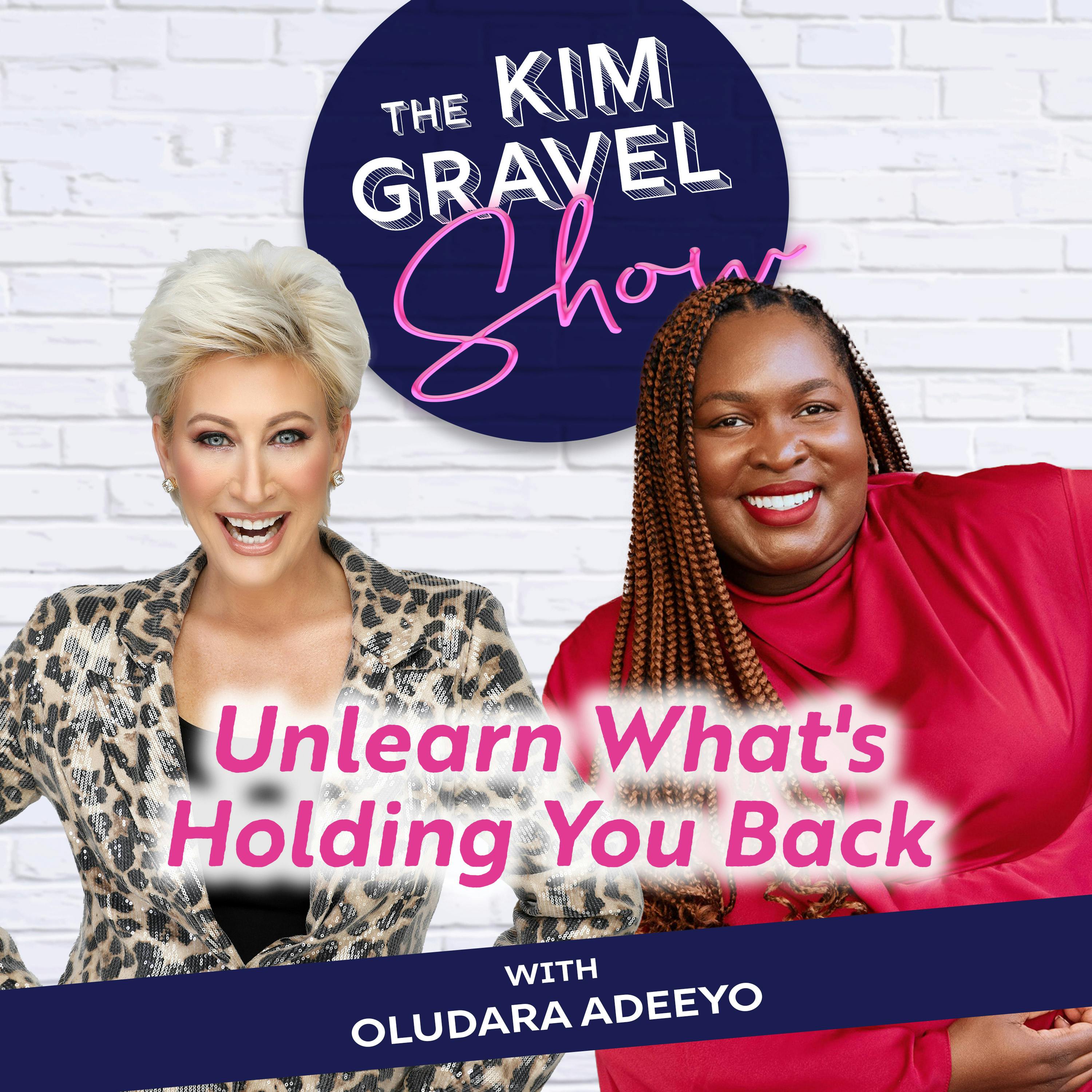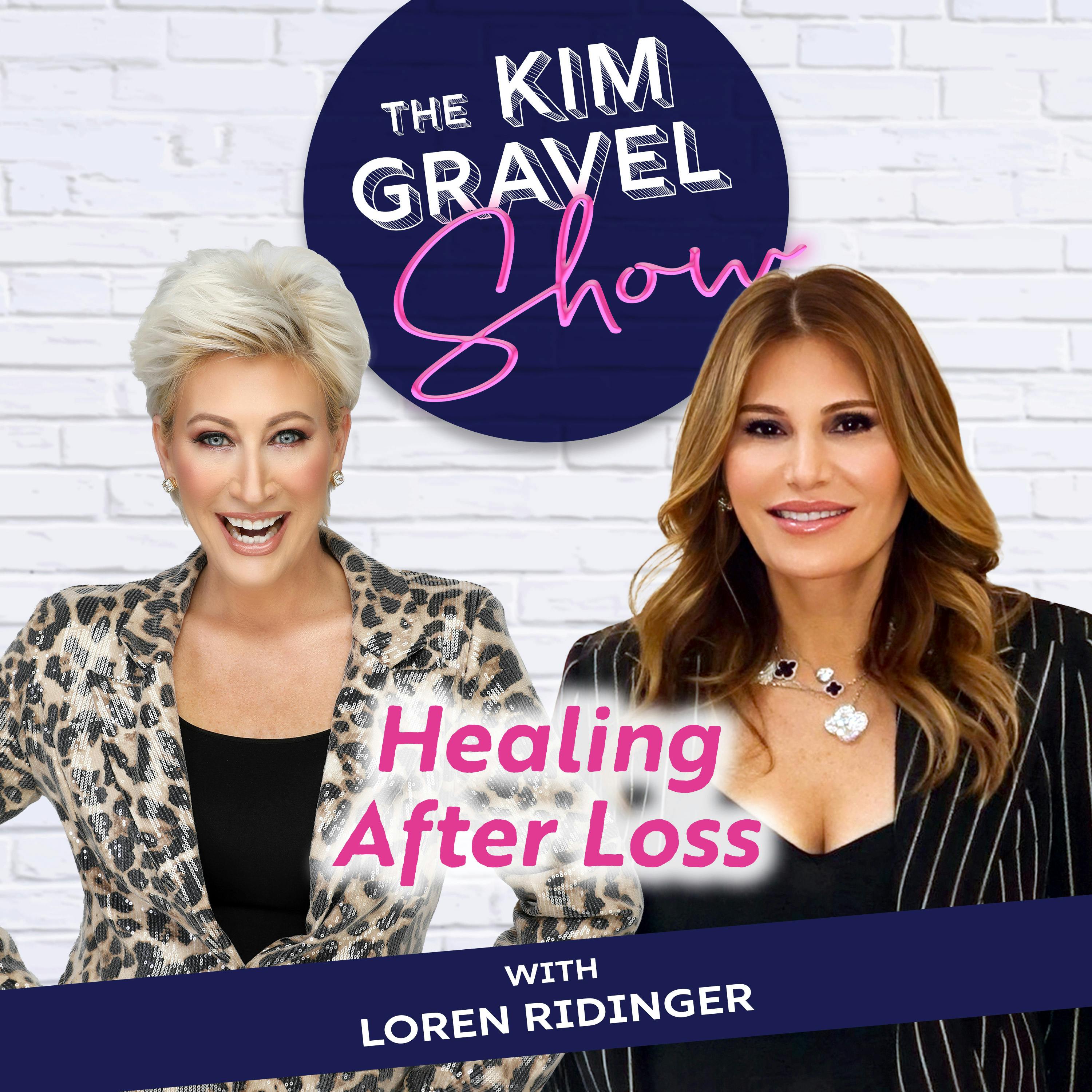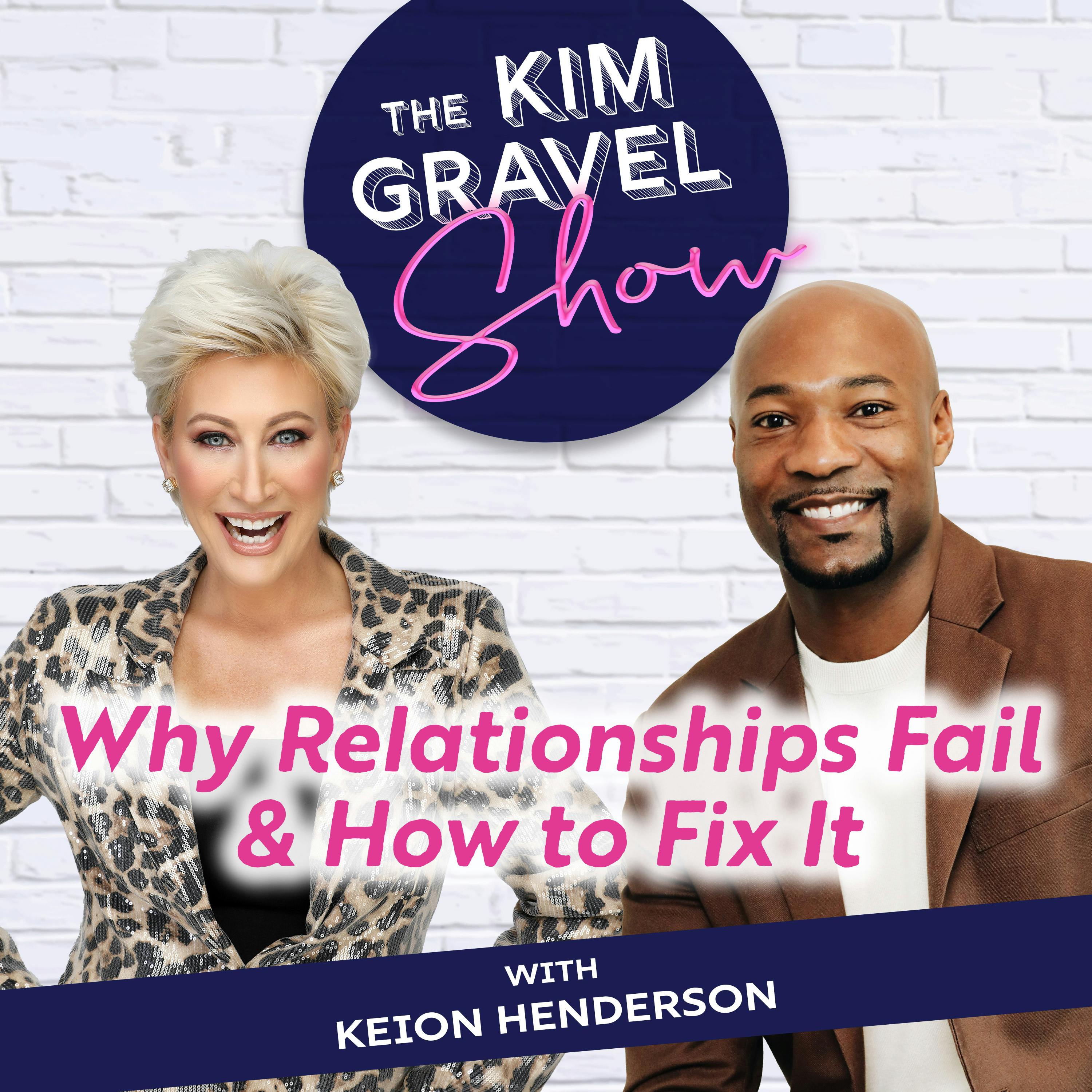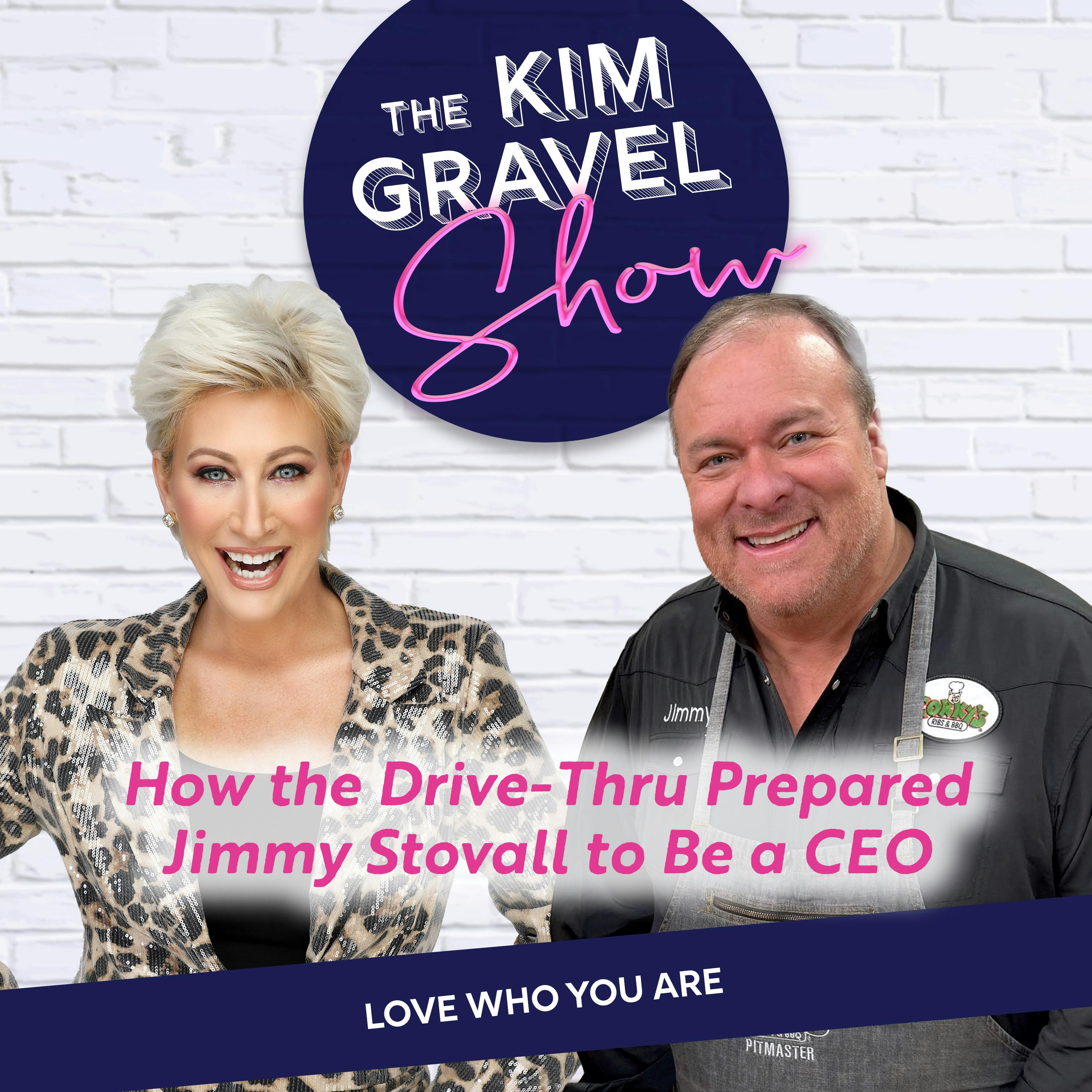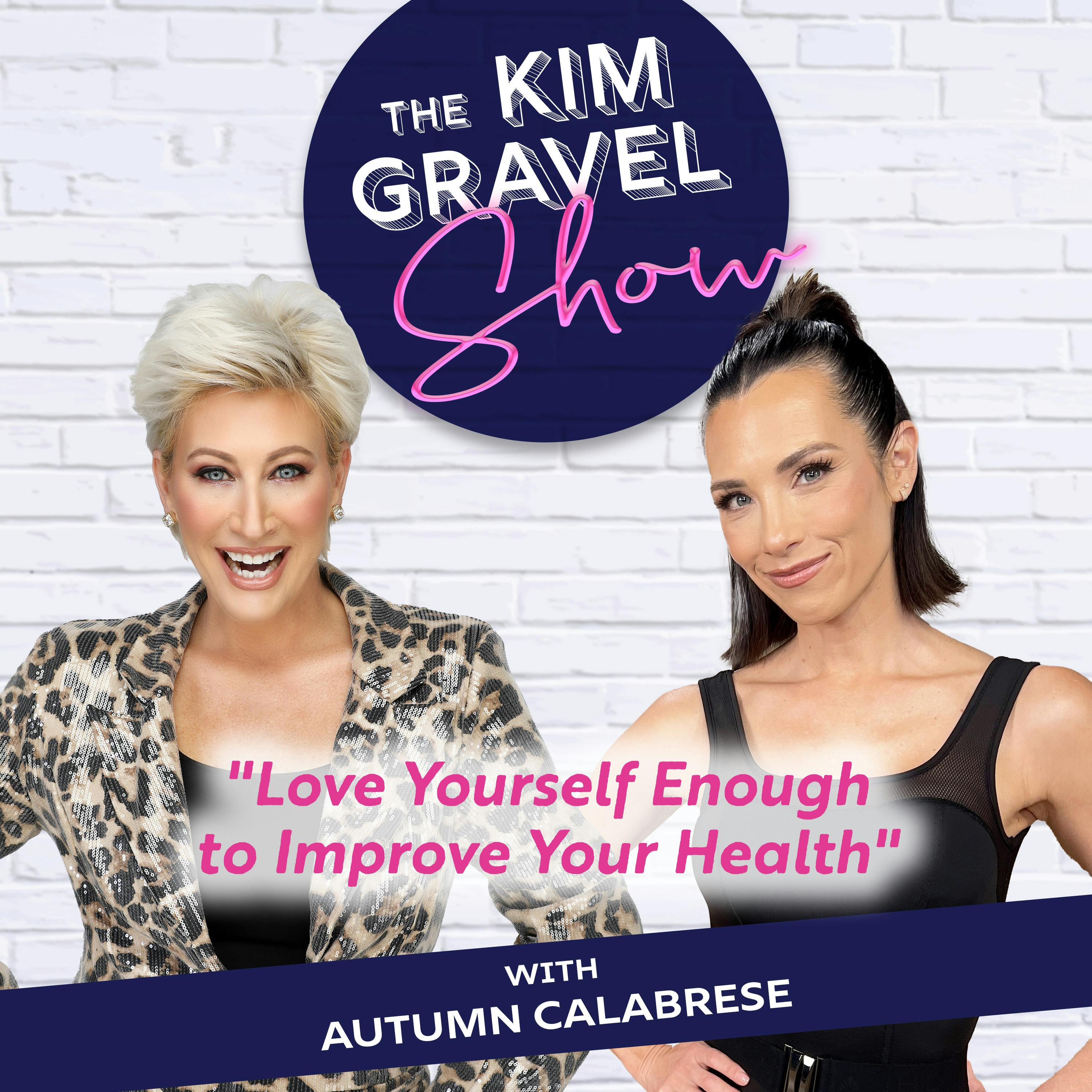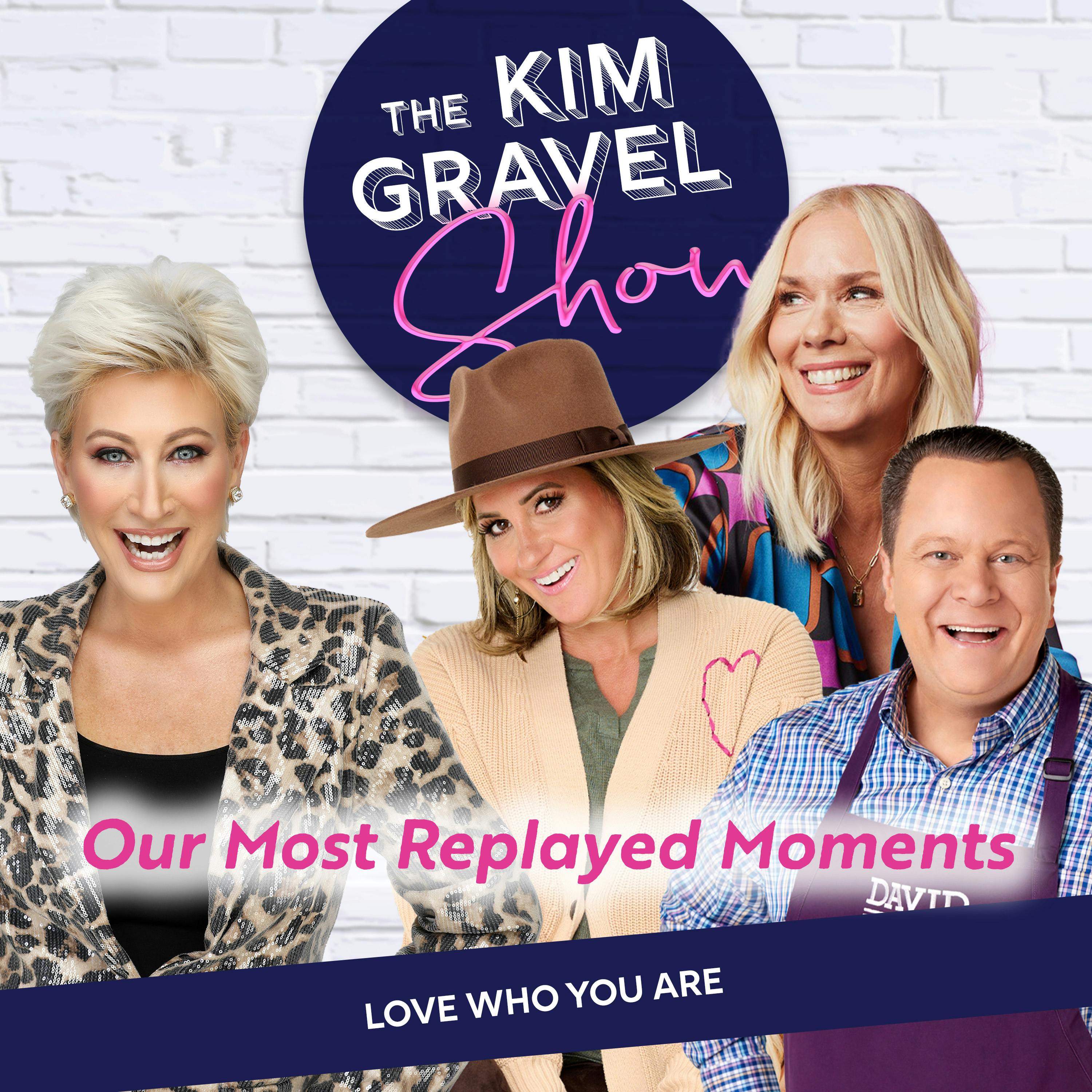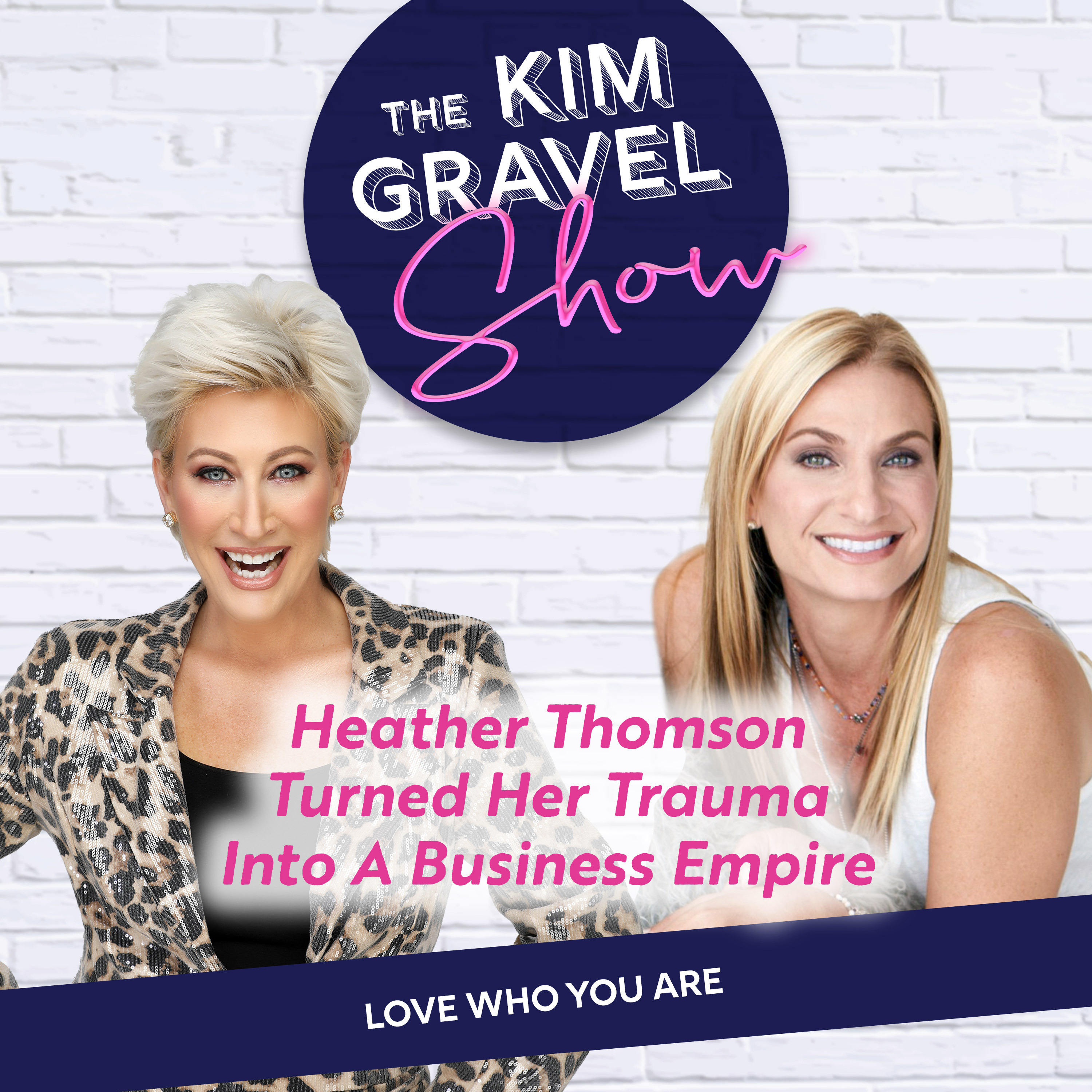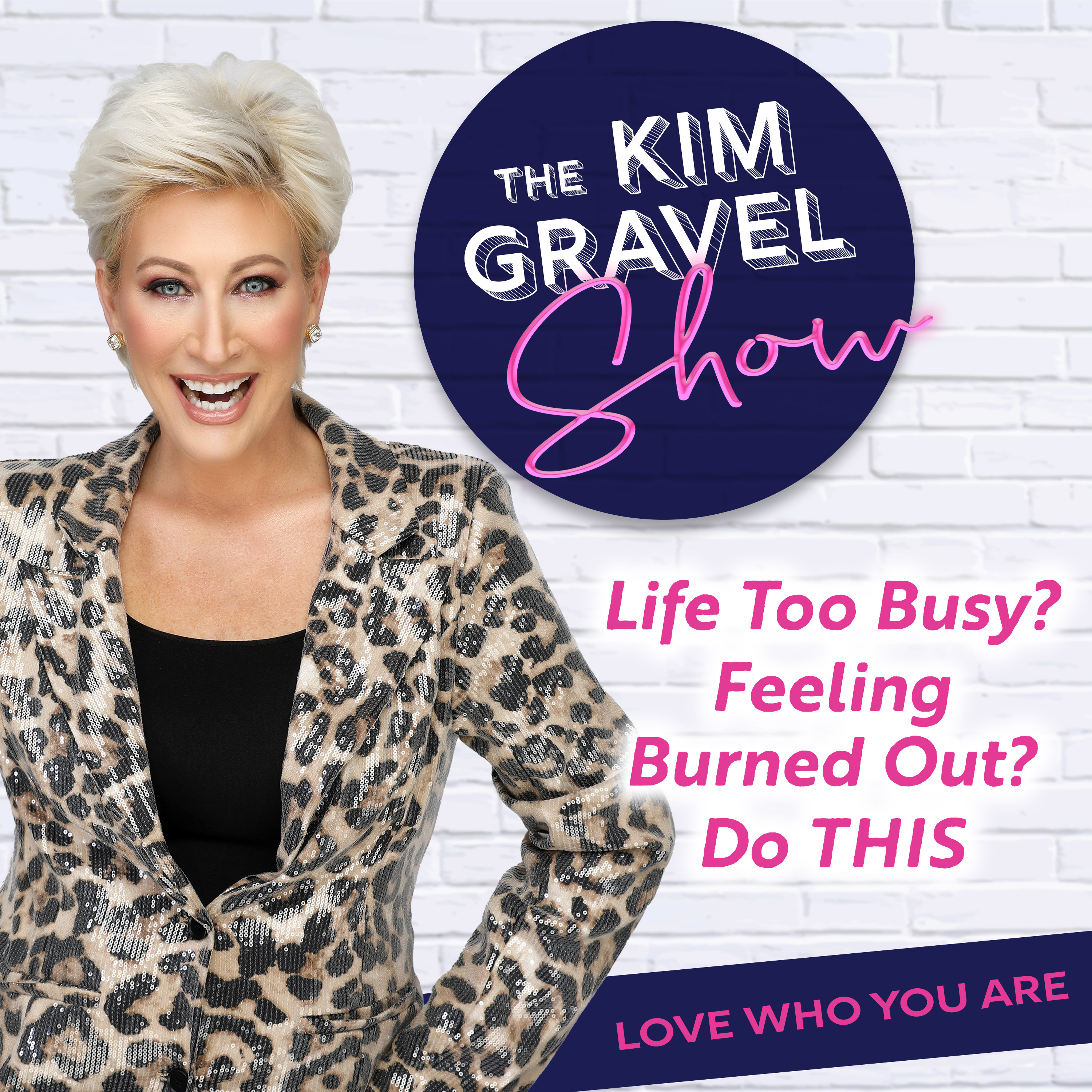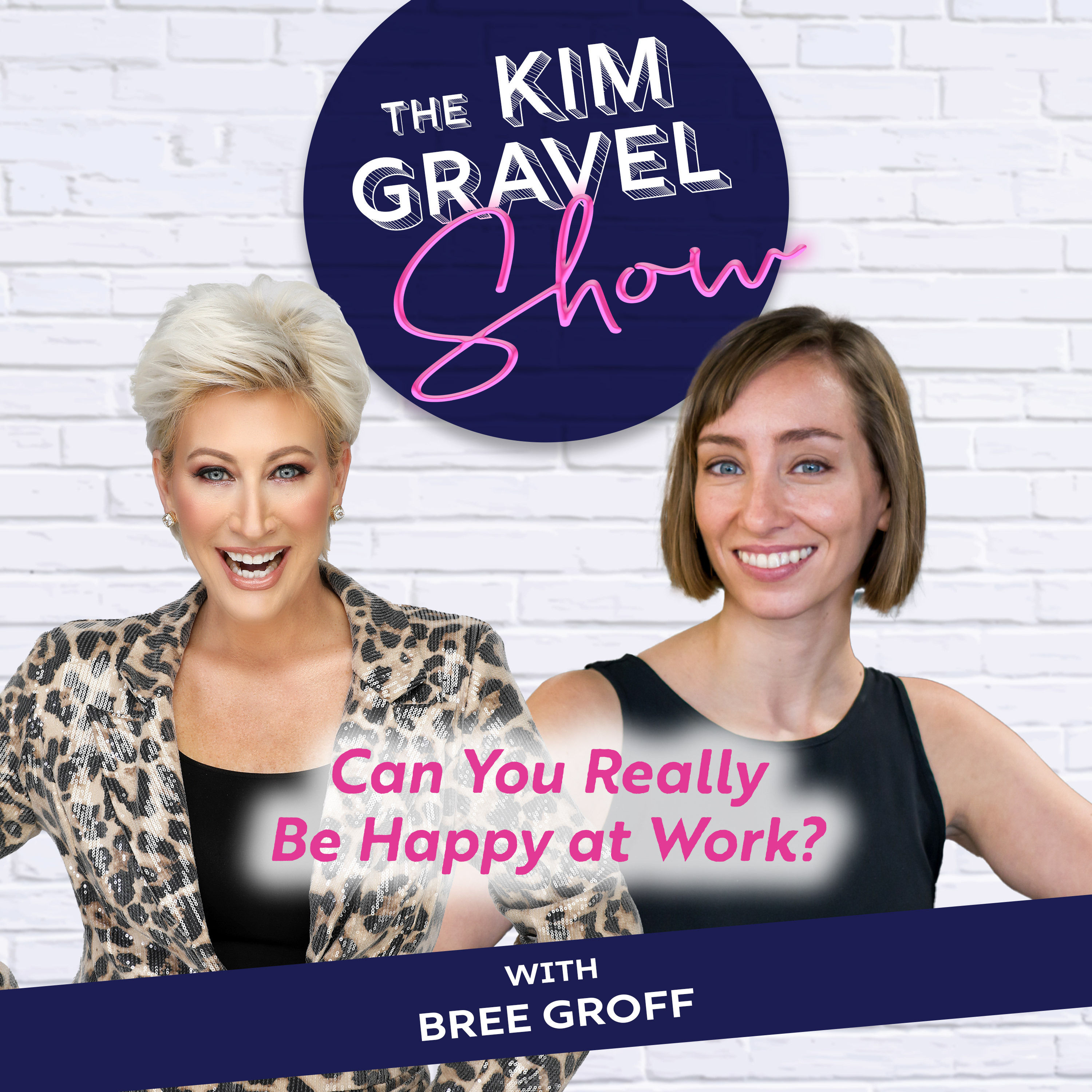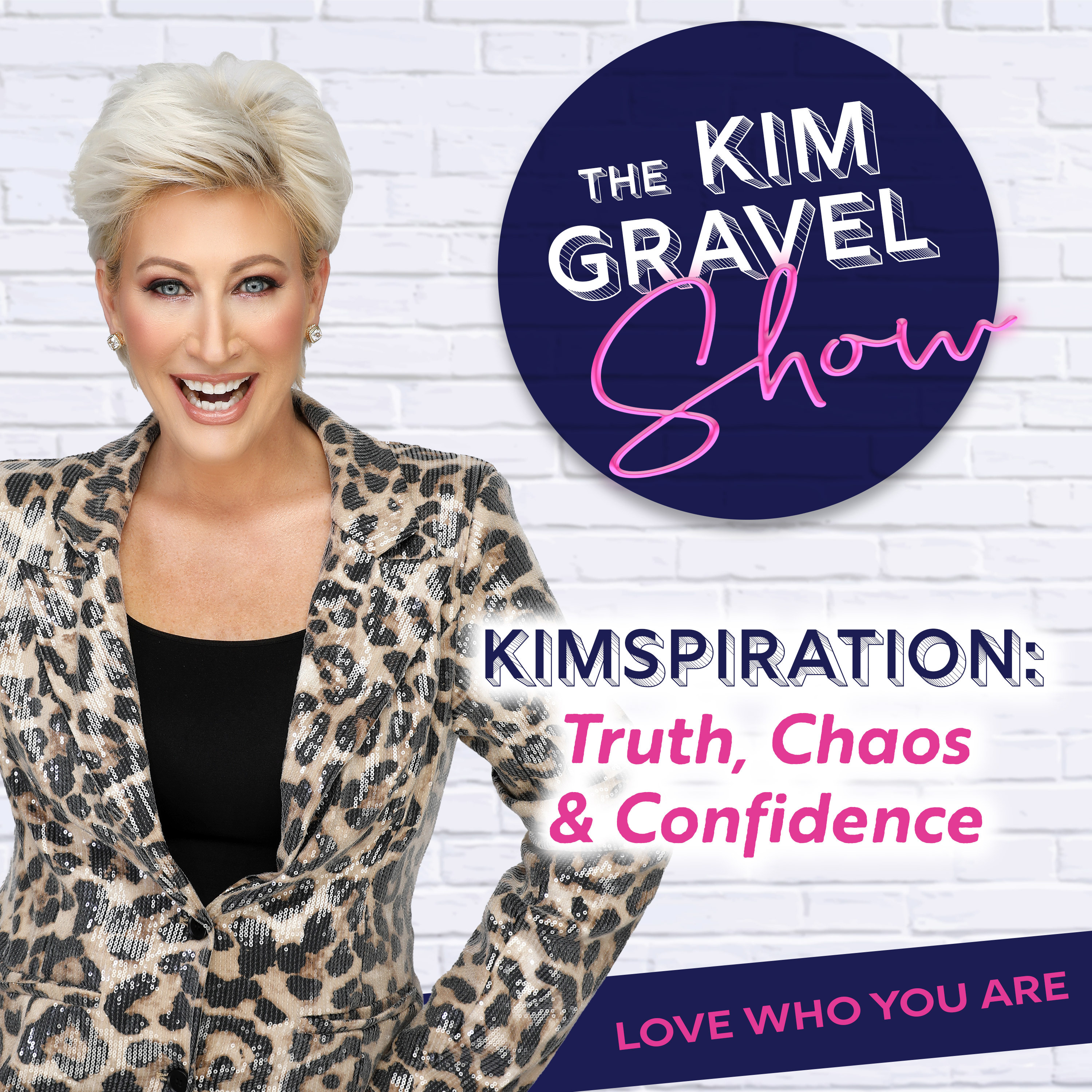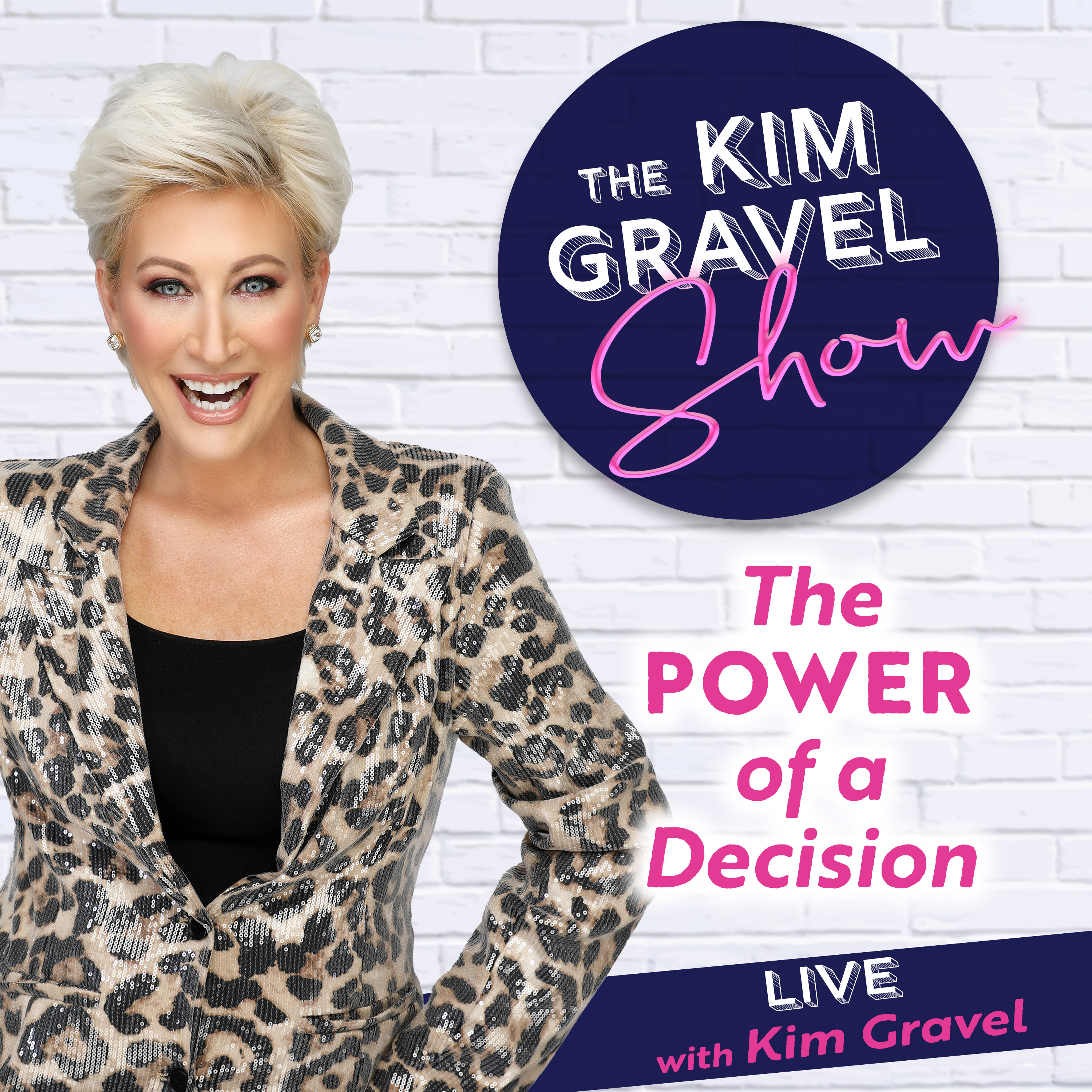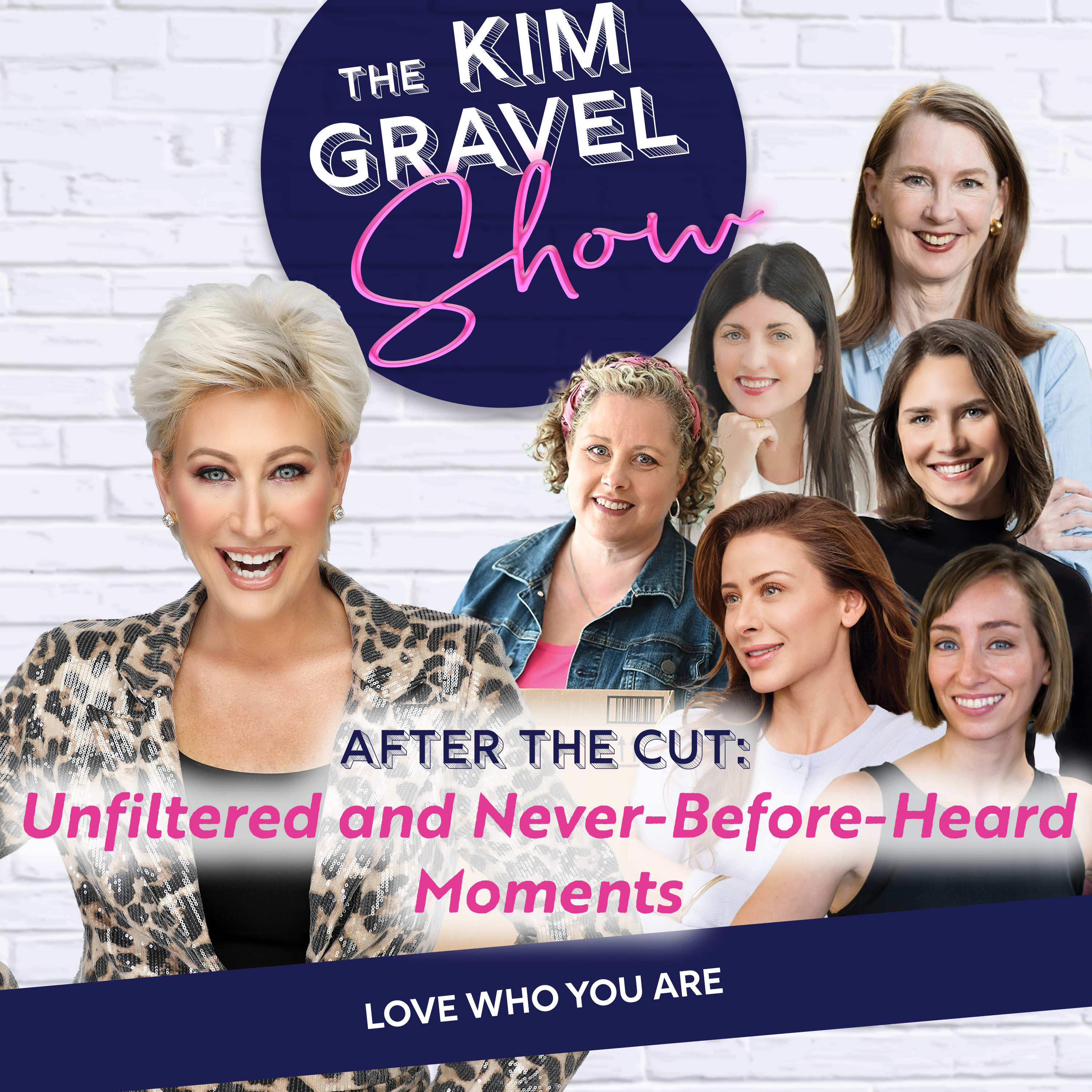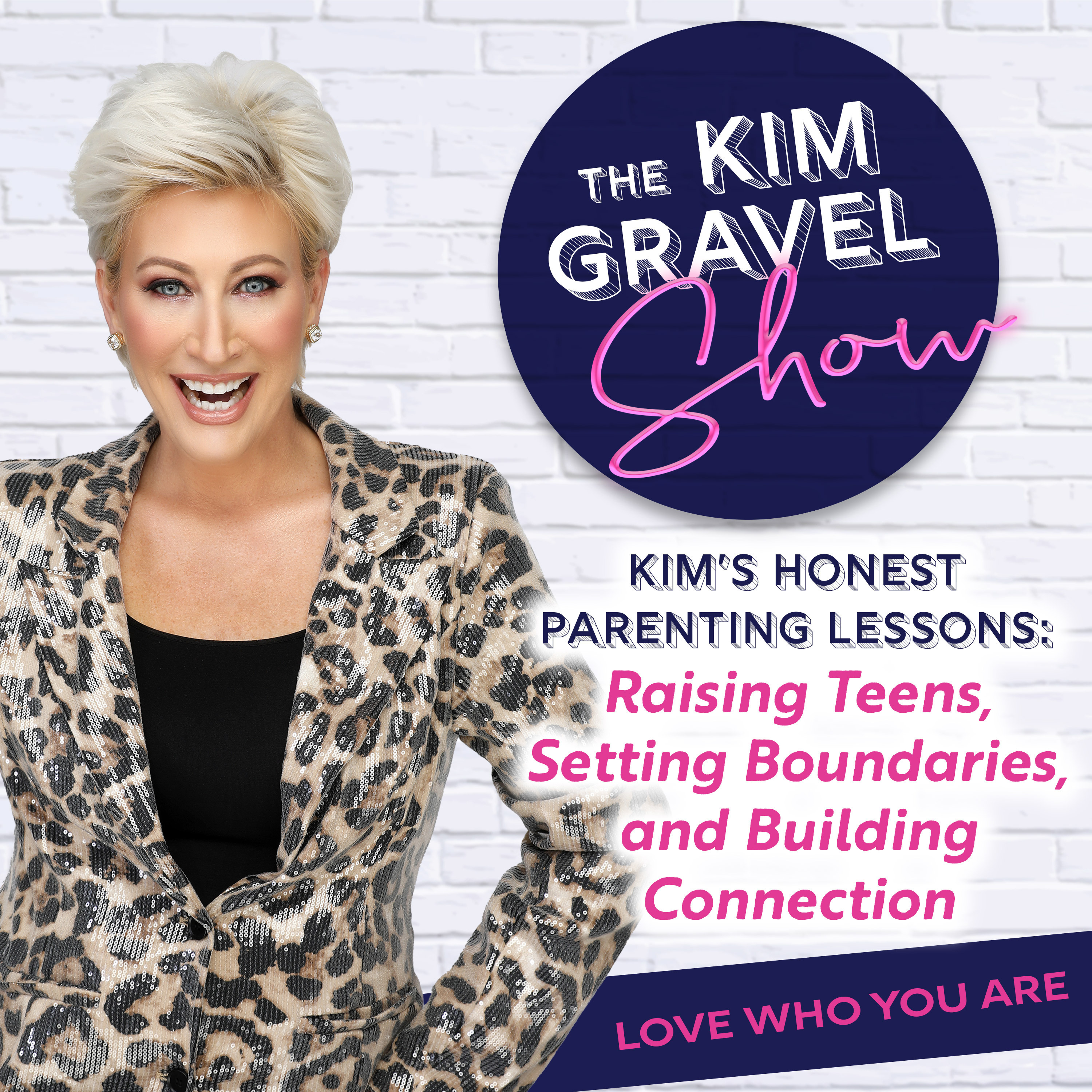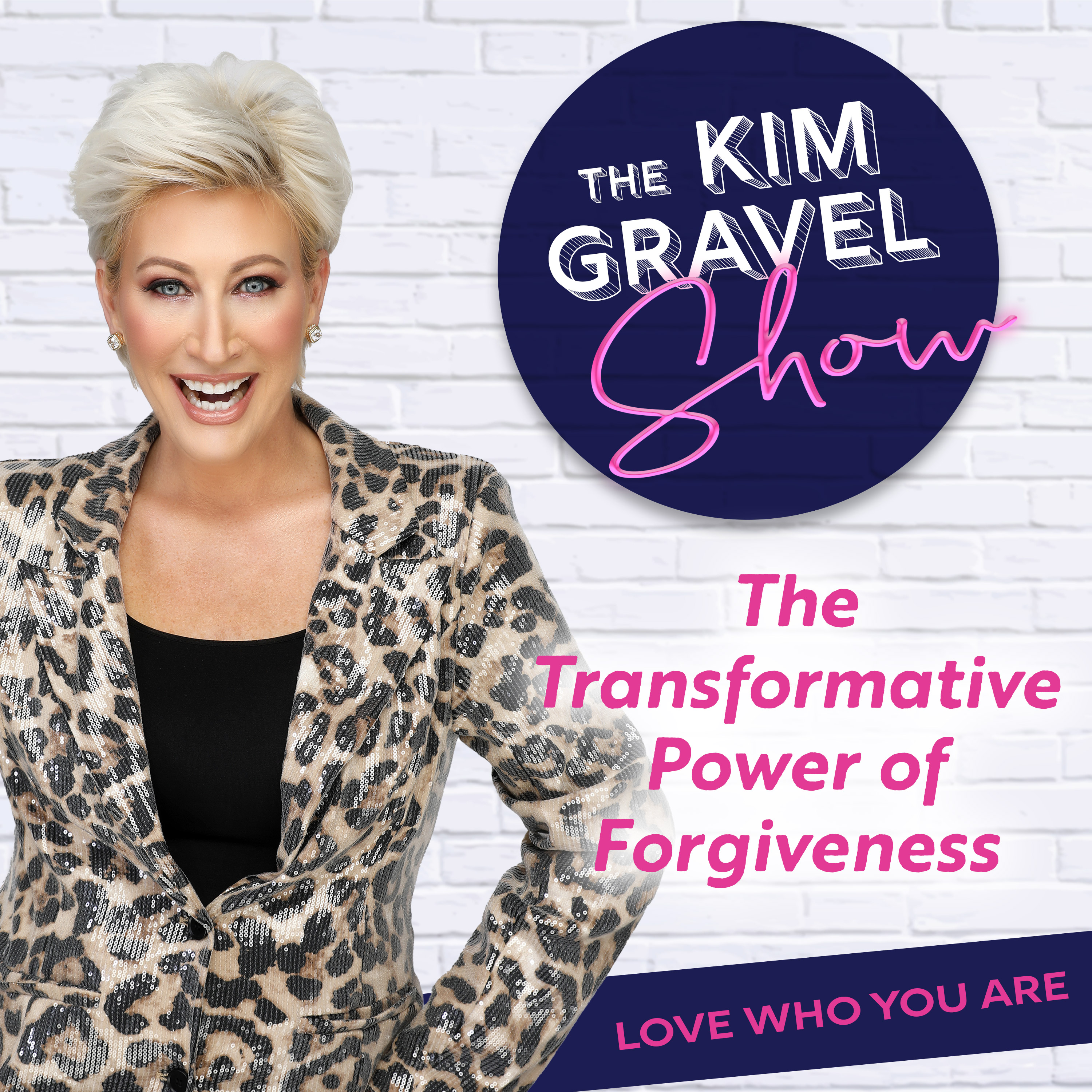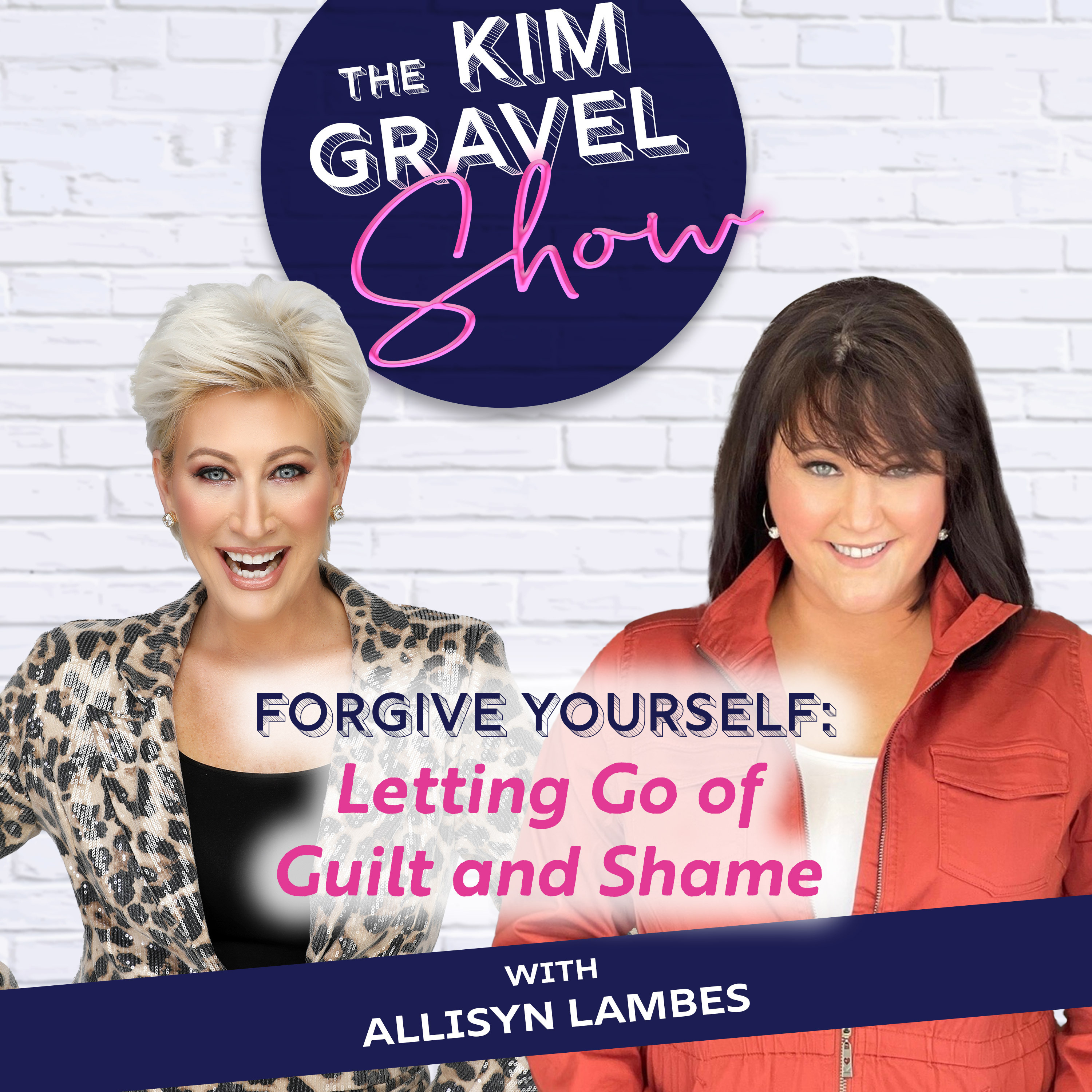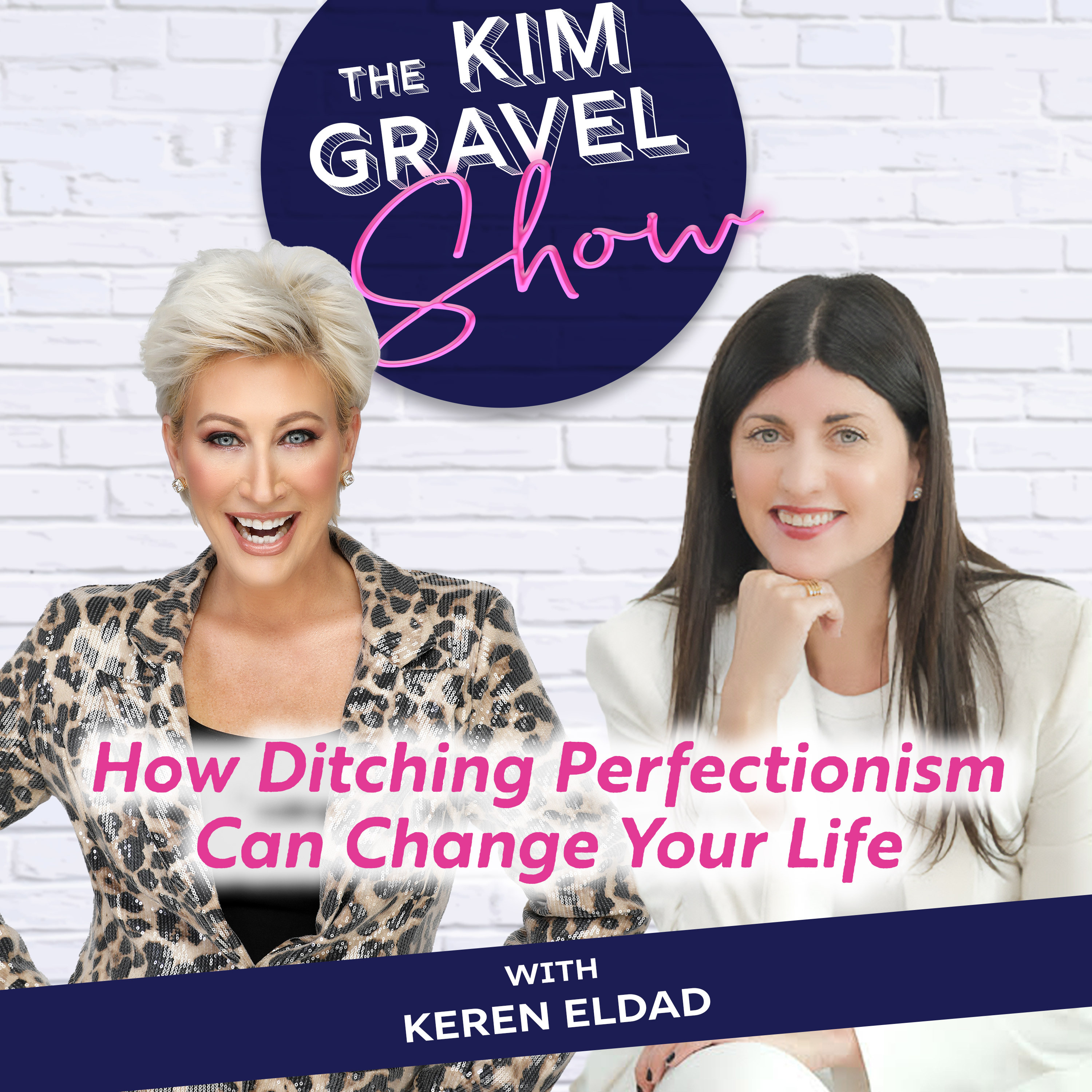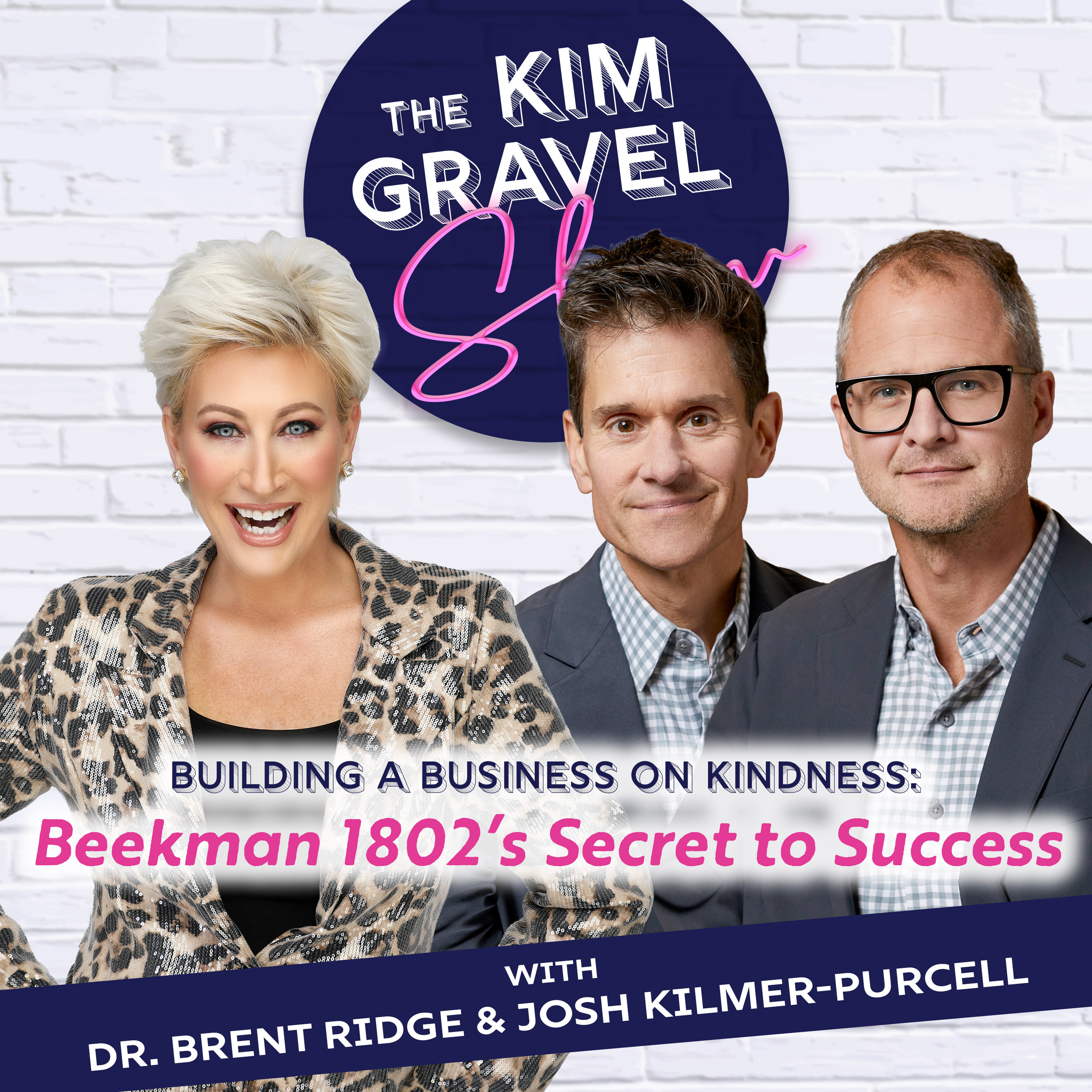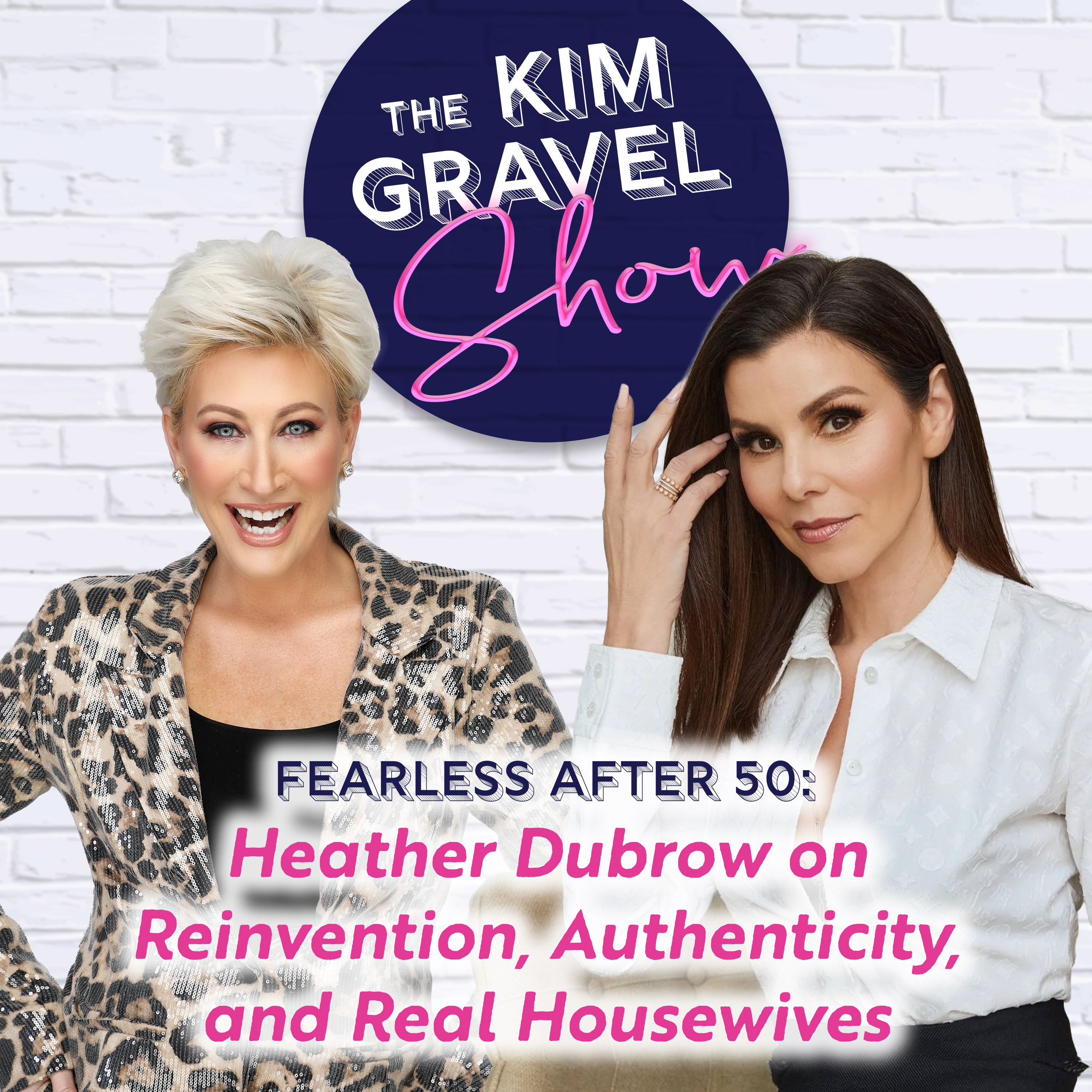Do This When You've Been Rejected
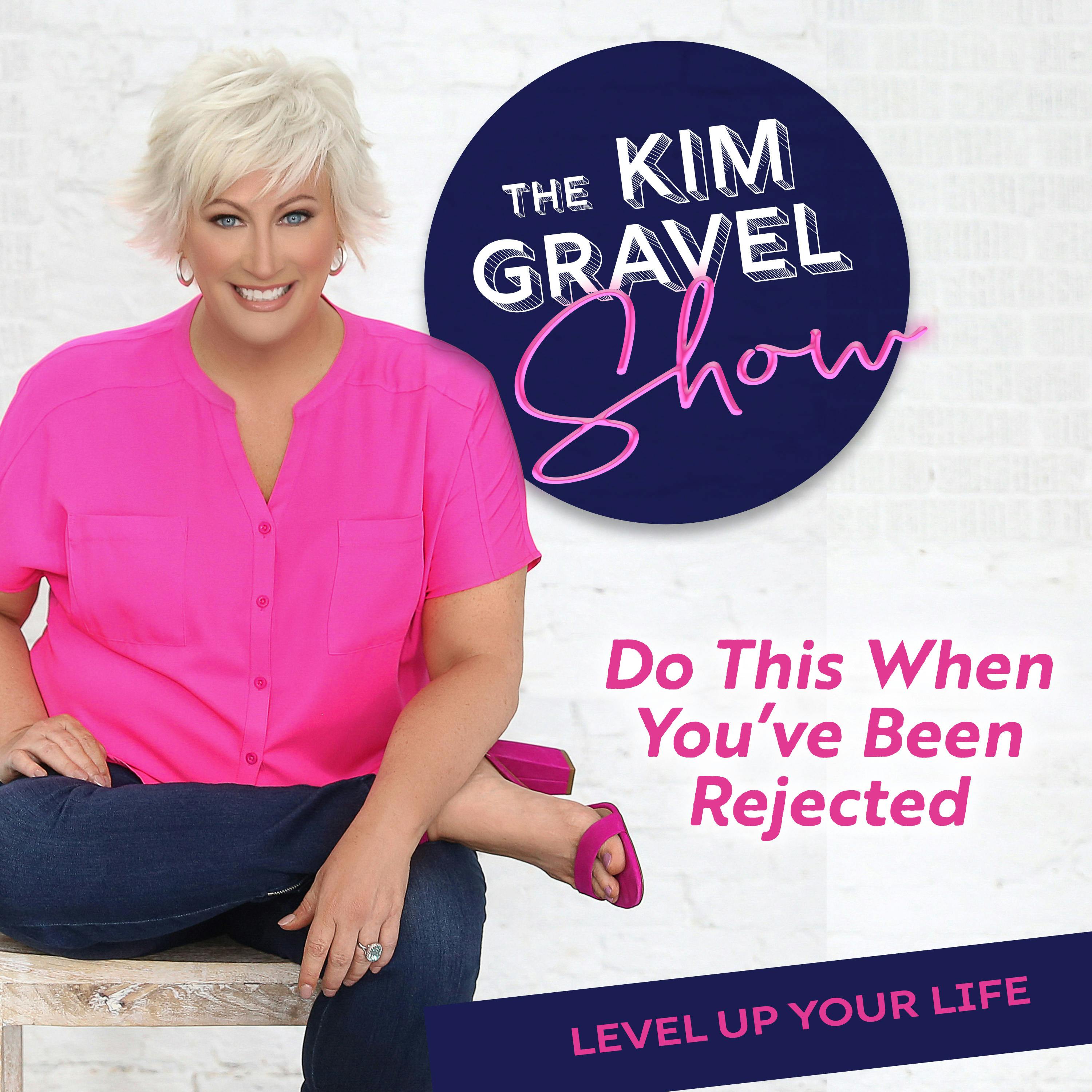
When was the last time you were excluded? How did it make you feel?
My son was excluded when his friends didn’t want to go to homecoming with him. Being excluded hurt and we sat down that night and spent over 3 hours talking through it. I had some revelations about rejection and exclusion during that conversation and I’m sharing those revelations with you.
Did you know that being excluded and rejected can change the way you see yourself and effect the way you think? This week I break all of that down and tell you how I helped my son heal and get past it stronger and better than before.
Our mess is our message, y’all.
This is one of my favorite quotes from this week’s episode:
“It's not the things that happen to us. It's the things that happened through us that make us confident.”
In this episode:
- How my son and I recently dealt with exclusion
- How exclusion affects us
- Why being left out affects logical thinking
- How exclusion stops you from pursuing new opportunities
- Why it’s important to learn how to navigate through rejection
- How to change your perspective on exclusion and know your self-worth
Sign up for my confidence course at: https://confidence.kimgravel.com/
Hurry, because my course is only available until October 20th!
New episodes of The Kim Gravel Show drop every Thursday.
Order my new book: Collecting Confidence.
Check out my channel on QVC+ for full video episodes.
Connect with Me:
Sponsors:
Thank you to Factor for sponsoring the show! Head to https://www.factormeals.com/kim50 and use code kim50 to get 50% off your first box!
Thank you to BetterHelp for sponsoring the show! Head to http://www.betterhelp.com/gravel today to get 10% off your first month!
Learn more about your ad choices. Visit megaphone.fm/adchoices
*This transcript was auto-generated*
Kim Gravel: Coming up on the Kim Gravel Show. I'm really a broken person. I'm so broken. And I'm lonely too. And I've been excluded. And my kids have been excluded. And I'm on TV every week. There's some of you who have felt this exclusion. And we've been hanging on to that for a long, long time. And it's really costing us relationships.
It's costing us peace. It's costing us our confidence here in the now.
Opening Introduction: Let's just go on and spill the tea. This is The Kim Gravel Show. This is one of the realest persons I've ever met in my darn life. You gotta watch this. My mission is to encourage every single woman, we're here to lift y'all up. There's no one more effective than moms. You mess with the bull. You going to get the horns. I need coffee. I need Jesus and I need therapy. If you can bring a smile to people's faces, why would you not? We love our kids. We love our husbands. What a blessing. We're gonna dedicate this to you in finding your superpower. Okay girl. True confidence is knowing who you are and why you're here.
Kim Gravel: This is the Kim Gravel show. And this is a show where we all come together and we lock arms and we encourage one another and help each other level up our lives. I don't know about you, but I want every ounce of juice I can get in this life, honey. And my grandmother used to always say the juice is in the squeeze.
So we're going to be, you know, really digging in, especially this episode to a topic that is personal to me as of right now in my life. And also, I think it's something that we've dealt with for a long time and even in childhood. So we're going to be talking about today, Zac, exclusion.
Zac Miller: Ooh, can I just say to the audience?
This is one of those shows where we had something totally different planned and Kim is just like text me what 10 minutes before we're going to go and you're like, no, we're going to do this episode. I like this is going to be amazing. This is straight out of your real life.
Kim Gravel: It is. So when I mean exclusion, I mean everything that that entails social exclusion, you know, business exclusion, people who exclude you when you feel excluded.
Or or rejected. I think those two things go hand in hand and I have dealt with it in a big way with both of my boys this last week and it has been the biggest Eye opening thing that I think i've ever experienced because I think we all experience being excluded and and being rejected And it's really different when you're outside of it watching like your children or someone that you love go through it It not only brings up Amazing triggers in your own life that you're like, Oh, ah, I don't know, you know, things that you think, but I think we're also experiencing it in our world today because we get so many emails, Zac.
And people reaching out saying how they feel alone and rejected and excluded. So when we come back, I want you to just hang on because we're going to dig into a topic that might be something near and dear to your heart. And I know all of us has experienced it, but we're going to dig it out and find out why that happens and how we can overcome it after this.
Do you want more confidence? Are you at a place where you want to figure out why you're here and what you're supposed to be doing with your life and you want to step in that boldly and in confidence? If that is you. I have something you need to do. You need to go to kimgravel. com and click on the confidence course.
Each week, there's building blocks. That's going to get you closer to knowing what your calling is. And then by week seven, you're going to be so fired up and so ready to walk into the world and do the thing. You're not even going to recognize yourself. And on top of that, you're going to have a community of people that are doing it with you and supporting you along the way, including myself.
Head on over to KimGravel.com and click on collecting confidence and in sign up. Now the spaces are very limited. We have a limited time that you can sign up because we only have so many spaces available. Do it now, before it fills up too quickly that you're not gonna be able to get a spot. So go to KimGravel.com click on collecting confidence and sign up. Now. I cannot wait to see you there. It is hopefully going to be this game changing life, motivating perception, shifting thing in your life. That is going to help you collect your confidence and walk in your calling fully. Zac, have you ever felt excluded?
Zac Miller: Kim, of course I have. Haven't you?
Kim Gravel: Oh God.
Zac Miller: How are you? I feel like. That's like a normal, doesn't everyone feel excluded sometimes?
Kim Gravel: I know. Is there any, does anything come to mind a story that comes to mind where you, you felt left out or excluded or, you know, rejected? Has there ever been a time in your life that's, I'm telling you, I asked that because if you go, yes, there is like, I mean, so many of us, that's happened to me so many times, but I just, I'm curious if you have a specific story you can remember.
Zac Miller: Oh man, I feel like. I feel like I can remember some specific stories. I think most of it really the stuff that like has stuck with me and really like bore deep down into my psyche is like all stuff from probably high school.
Kim Gravel: High school. Exactly. Oh God, I know. And there's something to that. So let me just start with this whole episode because it has been such a game changer for me and just what has happened and transpired in my own life.
My poor children, I'm putting all their business out on the street, but I'm doing it for a good reason in one of these days, you know, there'll be stronger and better for it, but I'm sorry, kids, but here we go. So it's homecoming week, Zac, and we all know how that can be nerve wracking and you're asking girls and you're trying to figure out who you're going with and all that.
So my oldest son, Beau, he's a very, you know, he's a. Popular kid for what, you know, popular is in high school. I mean, he likes everybody. He's got several different friend groups, you know, he gets along with the jocks. He gets along with the nerds. He gets along with, you know, all of the different people and, you know.
He's not committal to just one group. I mean, he really likes all the groups. So he came home and I said, son, what's going on with the homecoming? You know, and let me just preface and give you a situations because it's really Beau is less hurt than I am from. Okay. So let me just going to tell you, I'm just going to lay that out.
So he comes home and he says, well, I'm not going and he's a junior. I said, Oh, you're not going to homecoming and, and, and look, that wasn't a shocker because he don't want to wear, he calls them hard pants. He don't want to dress up to anything. I mean, I'm not shocked that he doesn't want to go to the homecoming dance itself.
Right? Wait, what are, what are soft pants then? Soft pants are like athletic pants or sweat pants. Okay. So if he has to wear what he calls hard pants, he's, he's not going, I mean, if he couldn't wear shorts to church, I know he loves guy, but I don't know if he would even love him that much, but on hard pants.
So I'm just saying like.
Zac Miller: Yeah, athleisure. Yeah. So that's.
Kim Gravel: He's athleisure strong. So he says, I'm not going to homecoming. And I just assumed, okay, he's decided not to go. And I have to push him. Do you remember that? Do you remember that, 16 candles? You probably don't remember that movie, but everybody listening to remember if you grew up in the eighties, where is the big dance, the high school dances in the gym, and there was one kid that the parents were having to push him into the gym and he goes, you're going, he goes, I just want to stay home with you guys.
That's kind of Beau, like, he doesn't have any interest in going to a high school dance. Okay. But he says not going. So I said, oh, I said, well, why? And he goes, because... Everybody's excluded me. Well, as a mama bear, I'm like, let me tell you, you know, of course I, you know, but then I, I started listening. I didn't want to go crazy.
So I said, okay, well explain to me what happened. And, cause I mean, he's so friends. He's so friends with everybody. I mean, Beau is a, is a, is a jovial dude. So what happened? And he said, well, well, he said, this one group, you have to have a date. The other group, the girls are running the show. And so they ask who can go and the other group is a bunch of people who don't have dates, but they said no, because everything's up in the air.
My whole thing is not why didn't Beau get, you know, get a group to go with homecoming. Here's my point. He felt excluded and it wasn't about not going to homecoming. It was about, wow, I don't even have friends. I can just tag along and go eat dinner with them and go to the dance. And we're all friends. We're all buddies. We're on the same teams. We've all gone to school together for a while. We all go and hang out. We play, we shoot hoops.
We, we, you know, and I can't go,
Zac Miller: they go as kind of like groups, right? You, you rent like a limo or a bus or something, right? Is that how they do it?
Kim Gravel: Yeah, that is, but that's not even the issue. That's really not even the issue. That's not what I'm talking about today. What I'm talking about today is that feeling.
When you feel like you've been excluded or rejected. And what you do with that. Okay. So as a parent and I'm giving you both story, but it could be any of our stories. Okay. And like you said, it's deep seated because for most of us that happens in high school, but it also happens over and over and over again in our lives.
And there's some scientific things to back it up with why that, for lack of a better word. Mental trauma stays with us throughout our whole life. It really does stunt and, hinder our confidence. And so I saw that with Beau and it, this happened one night and, and we talked for three hours about it. And as a mom, mama bear, I was going, I'm gonna tell you, you know, I wanted my first initial like.
In the flesh moment was to just call the parents and reign them out. One. Yeah. You want to fix it. You want to fix it. Want to fix it. Two. How petty am I getting ready to be? I wanted to unfollow every kid and every person that I follow on social media. That, that, that is really petty. But we've all had that thing.
I'm going to unfriend them.
Zac Miller: We need to take a step back. Wait, wait, wait, wait. You're following your kid's friends on social media.
Kim Gravel: Yes, they follow me. I mean, you know, I've been around the block a time or two with young people, you know, and I was just like, Oh, no, I am. I thought that was a petty, you know, stupid little immature.
So, and I can keep it real with y'all 100 percent because y'all felt the same thing to somebody takes y'all and you won't done follow them. So don't judge. And then, and then, you know, then I took a deep breath and I thought, okay, okay. Why am I having such a reaction of him being excluded and it's because even as an adult and I'm going to get emotional here, even as an adult, I have put up walls and I have set systems in place a, I don't get excluded or B, if I do, I don't feel it.
And so today I want to talk about that because there's some of you like Beau who have felt this exclusion. Either recently or like myself, the trauma of mine or Zac, you said you could remember yours and we've been hanging on to that for a long, long time. And it's, it's really costing us relationships. It's costing us peace.
It's costing us our confidence here in the now. So long story short, Beau and I had a three hour conversation about this because he just couldn't understand. Like these are my friends. These are people that I do life with every single day. Why would they exclude me? And then, and then why am I feeling this way about them?
And so we went through it and I will tell you there is, there is, and I'm not a counselor. I'm not a psychologist. I'm just telling you from real experience, Zac, what. That three hours resulted in at the end was actually this glorious life lesson that my son came to terms with himself, you know, because no, I'm not, but I'm just going to tell you, there's a happy ending.
So don't feel sorry for Beau, but I'm just saying it took three hours of conversation about it for him to really come to the conclusion himself and heal my long term. Trauma from exclusion and rejection. I wanna start by talking about like what, when you're excluded, what it does to you. We are so conditioned.
Hear me? To identifying threats in our life. I mean, we, I don't even know what that's called. I've heard about it a long time. You know, fight or flight and, you know, we are created for survival. Okay. Back in the day before we had, you know, AI and touch screens and all of that. I mean, in our McDonald's drive through, we had to go and hunt and do the things we had to do to survive to eat.
Okay. So there's still that, that, Oh my gosh, it's a natural bias to identify threats. Yes. Okay. And we are very, very keenly aware as a result of being able to identify threats. We are also keenly aware Of exclusion and when we're being excluded, like we don't have to sit there and go, well, wait a minute.
Are they leaving me out? Are you know what I'm saying? So like, like, it's not something we have to figure out. We instinctually know that's happened. Just like how we are always. This is a threat. This is a threat. This is a threat. We also know I'm being excluded. I'm not part of the team. I'm not part of the group.
I mean, this could happen at work. This can happen in high school. It does happen in high school. This can, this happens all over the world. This is happening in our political systems. I mean, there's so much to go into here. We're not going to be able to go into it cause I'm going to leave you with something positive.
So, we're always keenly aware of the exclusion and, but what we're not keenly aware of how it damages who we are and how it, it shapes. Us and how the roads we go down are diverted because of it, not to mention how our personal performance in our life is affected. This is your brain on exclusion. I got so tickled.
I read this study and I'll give you the info so you can credit this study. I read this study and it talks about your brain on exclusion. So what happens to the brain when you're excluded? It says that we've all been felt left out. We've all been left out of a group. Think back to your junior high or high school, which we've been through or the last round of promotions that you weren't part of or that special meeting or project that you weren't included in.
You get the idea. You know how emotionally painful it feels. That's what Beau was feeling. He was feeling this emotional pain. His emotional engagement was wounded. Our belonging, love this, is threatened when we are ostracized or excluded. Okay, and we dive into our fight or flight or freeze mode. So when we feel emotionally ostracized or excluded, when we're excluded, we feel like that's a threat and we're in it to fight or flight.
Okay, so this is where our brain, and I'll get to it, and it says now our brain literally cannot function the way it does when it feels safe and in the smart state.
Zac Miller: What does it mean for your brain not being able to function?
Kim Gravel: Well, it's scientific. It releases this enzyme that attacks the hippocampus. And I had to look up what hippocampus means.
Now y'all stay with me because you know, this is not my forte, but I'm trying to be smart here. So follow me. And, and, and, and, but when I went through all this, this was weird. I know you're like, Kim, really? Your kid's sitting with you. He does follow me. That hippocampus is a part of your Olympic system that processes your emotions.
And it plays. Such an important role in consolidating the information like in short term memory to long term memory. Okay, so when you're being this is what this is what's happening when you're being Excluded. Okay, your limbic system your emotional processing system Consolidates that information from just this short term.
I'm gonna hit you in the face. It's gonna be over or you're one and done To a long term memory. So this rejection and this exclusion stays with you. That's why you can remember it from high school, Zac. Okay, and that memory is directly related to your personal performance and your confidence and stepping out because you're like, dang, I'm stepping out because I'm not trying to get excluded.
Right. So if I just stay in my house on my digital phone with my digital little people and not have to go meet people and have to be excluded or rejected, then I'll never feel that emotional hurt again. Beau was not even saying, why am I being rejected? Why am I being excluded? Right. He was just saying, I'm being excluded.
So I ain't going.
Zac Miller: Well, and then it's like, so it's like your body is, is like, I'm being excluded. I don't like this. I'm not doing this again. Right? That's sort of
Kim Gravel: Or anything where I possibly could be excluded. Right. This is why people are stuck. And it stops you.
Zac Miller: It's stopping you. It's stopping me. It's stopping all of us from like, branching out and doing, trying those new things.
Kim Gravel: Yes. It's reducing your field of view. And it just makes you focus on this narrow span of what you have to do just to survive. So again, you're in the fight or flight mode. So, so that's just survival mode. Life is just not about surviving anymore. It's thriving. We want to do right. It's leveling up is what we want to do.
But a lot of us are not doing that because we've been rejected or excluded. That's what was happening to Beau. So he was like, Buppet, I'm not going to the homecoming at all. Cause I've been excluded to go out to eat with a bunch of friends and take pictures in a park.
Zac Miller: Right. It's such like trivial. The actual act of it is like so trivial, right?
It's like, Oh, we're going to eat some food. We're going to go to a park. We're going to take some pictures. We're going to get dressed up in fancy clothes, you know, and
Kim Gravel: so it's your job. Right. So is it, is it your job when you don't get asked to the coffee, you know, meet up coffee thing before.
Or whatever, or you get passed over on the big project at work, you feel excluded. So you stop and go, I'm not going to do anything because I'm just going to just do status quo and stay right here and not level up my personal performance because I'm afraid that, you know, I won't be included. Y'all, I'm telling you, this is real talk.
Zac Miller: Ooh. And then, oh, okay. Okay. Wait, I think I know where you're going with this, Kim. And then is this like, is this like,
Kim Gravel: let's land the plane. Let me help me land the plane.
Zac Miller: Is this, yeah. We're foaming the runway. We're going to land the plane. We're going to land the plane. We're gonna crash land it, but it's gonna be great.
Is this, now you're starting to talk about like building sort of this idea about who you are, right? Like I am someone who is excluded. I am someone who's not one of the cool kids. I am someone, you know, I'm in the nerd group. I'm not, or replacing that group. I'm not in, we're replacing that shock group.
I'm not in the right, like right. You start to fit yourself in, like you said, like this sort of like. Navigation system that your brain has like you're navigating the world right and you're trying to figure out where you fit.
Kim Gravel: And well, I'm gonna even say to you this, because remember we talked about these little, these little small groups of people who are inclusive that exclude.
Those aren't real either. Maybe we'll do that on a separate separate thing. They want to be fit in to keep in mind. We all feel the same thing. Ain't nobody superior. There's nobody that's got it better than you. Right. Okay. So they're just, they've been hurt. So they going to be exclusive because they're not trying to be excluded themselves because it's happened to them too.
Y'all, this is so deep. Now wait a minute. When we come back, we're going to take a quick break. When we come back, I'm going to tell you other things that have happened in your personal performance as a result of being excluded. And then we're going to talk about how you can overcome this and how Beau did.
He came to the conclusion himself and gave me the light bulb moment after this.
Okay. Stay with me, y'all. I know we're going deep and I hope this is touching a lot of people. And look, I'm just telling you, this is a personal experience that just happened to me the last week. With Beau being rejected, or as you would say, excluded from the homecoming dance at BCA. But a lot of us are saying, you know, like my mom, that's ridiculous.
Ain't nothing. Nobody cares about high school. Nope. They don't. I agree. It's ridiculous.
Zac Miller: Your mom will just yell her way through. You know, your mom will just like, you know.
Kim Gravel: I mean, Zac. I mean, you even said it. It's a big, it's a homecoming. You know, we all think it's not about the dance, y'all. It's about this emotional attachment to this.
Being excluded that I didn't want him to carry throughout his life. Okay, so let me tell you what it does when you're excluded to you So we talked about the brain and how it how it affects this You know your your emotional systems to be able to process and it takes it from short memory to long memory That's why we still can remember it and it puts us in this fight or flight mode.
So We're stunted With moving forward with things that really we probably should or try or do you hear me saying this all the time. Do it afraid. And I thought to myself, you know, that sounds good in theory. And I'm sure people going. Yeah, Kim, I bet that's easy for you to do it afraid. And I don't want to be flip it with that because I still believe do it afraid.
But for those of you who say, I can't do it afraid, this might be the reason why, because it might be you're less likely to try new things or, or, or meet new people because you don't want to be rejected or excluded. Okay, so it affects that it shrinks its working memory. It's so focused. I can't tell you.
We sat there for three hours and talked about homecoming because. Every bit of that, our energy and our focus went to. So it stops you from allowing yourself being excluded stops you from allowing yourself to put it in the proper perspective. Okay. And really. It really distracts you from coming up with new solutions or ideas of how to solve this problem of exclusion.
Did that make sense?
Zac Miller: Yeah, it does make sense. Well, I was just about to ask how, so the three hour conversation, like, how long into the conversation do you think it took to sort of dig out of that Emotional reaction. I'm not thinking straight. I don't, you know, I'm just sort of reacting three hours to get to.
It took the whole time, like the whole time was an emotional reaction and it took that whole time to like dig.
Kim Gravel: It took the whole time. Wow. It took the whole time because we were not able. We were so hurt. And I was as hurt as he is because you know, when you have kids, you know, Zac, you feel their pain.
Yeah, you live their pain. You can't problem solve optimally when you have been excluded or rejected. It's in the brain, y'all. It's not even just like, that's your feelings. Get over it. Suck it up. Do it afraid. We can't. Our brain has processed it to a point of long term memory where it is trauma that we are fight or flight.
Let me tell you something. If a tiger is chasing you in the woods, are you thinking about anything else but that tiger eating your face off? Right. Of course not. Right? The same thing happens when you are rejected or you are excluded. Right. All you're thinking about is that and surviving. Right.
Zac Miller: How can I get out of the situation?
Kim Gravel: Emotionally you're being chased by a tiger. Yep. Okay. So it skews your ability to problem solve optimally. To be able to sit there and go, wait a minute, what is this? Is this really homecoming? Is it really that big of a deal? Okay. You become less creative. So, we're talking about Bowen Homecoming. Now, let me just tell you.
The boy just won treasurer of his class hands down unanimously. He's making the float. He's writing the float on homecoming. It ain't been excluded by all his friends that asked him to go to home, that voted him in as treasurer to do the homecoming. Okay. Y'all, but you don't have the processes. You can't process that logically.
Okay. And you're less creative. Okay. It, our experiences are fewer because we're, we're too afraid to do anything. Our ideas and our thoughts are skewed by what other people think. And if they're going to exclude us, our capacity to create opportunities or to even step into those opportunities are reduced.
It stops us for having a reasonable look on fear and threat. Okay. Meaning we over exaggerate or we overemphasize the smallest things. Happened to us. I'm gonna tell you what, my daddy used to always say Uhhuh. Right? They looked at me wrong. Oh my gosh. They're gonna tell, okay. We start getting paranoid and we stopped having a rational viewpoint of, processing threats or processing.
What, what really is someone being exclusive? Okay. You know what I'm saying?
Zac Miller: I have a, I have a deep question, but I don't know if I should go there. Go there is then. Okay. So if you can't process this, all of this, right. And it's an emotional process is the confidence. Like once you sort of internalize this, this message of confidence that you're so good at teaching and, and, you know, is, Is in your book and we talk about every week.
Do you not does your body not even go to that place anymore like that that fight or flight place and then you are able to it is the confidence the ability to brush it off in some ways.
Kim Gravel: The confidence comes from being able to process and recognize it for what it is. See that is it's not the things that happen to us.
It's the things that happen through us that make us confident. Okay, I'm so thrilled that Beau went through this experience because going forward when he is excluded and he will be, he will now be able to keep it in that short term memory thing if he, if he, if he puts his mind to it and understand that this is a snapshot, it's a moment in time.
And what am I to learn from it? Because. If you don't, okay, this is the last thing I want to talk to you about before we get into the rainbows and happy endings. If you don't, you are less likely to connect with others. And that's what we all crave y'all. We are so powerful and so, beautiful and so successful in our personal lives when we connect with other people.
Yeah. And it doesn't shock me that everything evil and everything that is negative is conspiring to get us to not connect. That makes sense. Right?
Zac Miller: Yeah. Everything's trying to tear us apart and separate us and make it us versus them. And you know, there's,
Kim Gravel: and it starts with exclusion. It starts with exclusion.
It starts with people going, you're not one of us and you're not one of us and you're not even one of us. They're not even one of us.
Zac Miller: Why is it that, you know? His friends would exclude him right like why is it why is it that we as people don't know are so? But just more generally right Kim like yeah in some ways like it feels good to be the person Excluding it feels good to be like I'm the VIP you don't have access to this party.
I'm the exclusive person.
Kim Gravel: People who exclude do not think they're actually better than people. They, they, they're, they're exclude because they're afraid you're going to find out they're not.
I'm going to tell y'all something right now. Listen, when I truly say there is no one like you, I, I'm not just shooting a breeze y'all, not just farting in a wind. It's truth. It's scientific, actually. And I ain't even a scientist. I mean, I could barely read what is this hippopotamus hippocampus. I can't even read that.
I mean, I love to learn about it, but I can't even spell it. Okay, so I'm not this genius person and I do not have it together. When I tell you I have nothing together. I'm lucky to have my bra on sitting here talking to you right now. I'm telling you, I'm not this great arrived person. I'm really a broken person.
I'm so broken. And I'm lonely too, and I've been excluded, and my kids have been excluded, and I'm on TV every week. So let me just tell you something. Y'all, there is no person that has arrived that is better than you and we've got to stop just saying what they don't want me. I don't want, we got to stop it.
We got to understand the why. I always say this. Why the buy? Why do people want to buy our jeans? Why? Why are people doing what they do? Why do people exclude? Why do people, if you know that, then you can look at it from a logical place instead of this fight or flight, y'all, I'm telling you, because this fight or flight survival mode that we go to when we are in pain or we have been hurt, it stops us from sharing, it stops us from connecting, and it stops us from living the most ultimate leveled up life that we can, and so we had this, this three hour conversation in order.
We talked all this thing through. I looked up stuff on my, on my phone for that. Now I'm going to leave this because I'd love for you if you want to dig in deeper to this, I'd love for you to read this, this little synopsis of exclusion that I found. This really, it's really nice. It's really good. We'll post it in the show notes.
But, but this is how it ended. It says, bring the out group in. Okay. Okay. Okay, Beau. Okay. I smell what you're stepping in. And he didn't say that. That, that's in this thing. That's exactly what he said. He said, you know what, Mom? I'm gonna go. I said, Oh, you're gonna go to homecoming? He goes, Yeah. I said, Oh, what you gonna do?
He said, I'm just gonna go and drive myself and walk in myself. Okay. And I'm thinking, would I do that? I don't know if I'd do that. I've been rejected. First of all, if I was rejected, I'd tell him, say, let me tell y'all suck. I ain't going. I mean, I would be, you know, I'm a, I'm a fight and flight. Not or I'm a fight and flight.
You know what I'm saying? Like, I'm gonna take you down. You know, that's my personality. Yep. He said, I'm gonna go. I'm gonna go. So I said. I said, okay. I said, let's pray about this. He said, no, I'm going. I'm going. And, I said, okay,
Zac Miller: so he's not even going to ask anyone else. He's just going to go.
Kim Gravel: He's just going by himself.
And I said, why? And he said, because you know what, when we get to the homecoming, going to eat with everybody and, and, and having a date and all that, he goes, we're just going to dance and have a good time. And I said, oh, I said, well, you know, they were having a big after party. And, I said, well, what if you don't get invited to the after party?
He goes, I'll just come home. And I said, Are you okay with this? He goes, I am. He said, Because this really has nothing to do with them. He said, I'm the treasurer of the class. I've helped put the thing on. I'm going. Right. And of course, the next day, they're having a big after party, and they're like, Beau, you gotta come to the after party.
I still don't know why they can't, he can't go with him to eat. I don't know why I can only go to the after party. But, and I said, well, that's nice of them to let you come to the after party. Watch this, this is what I love. And he goes, people don't let me do anything. If they never invited me to the after party, that's on them.
He said, because you know what, mom? I'm just passing through.
Zac Miller: Wait, how is... Is your son like the Dalai Lama or something? I'm just passing through that sounds like. That is amazing.
Kim Gravel: He's a 16 year old kid. He don't know his butt from the hole in the ground. But sitting down in in really talking this stuff out and in me sharing with him them excluding you says more about them than you and me just saying the things my daddy always told me in me.
Taking because Zac, when I tell you when he was rejected or when he was excluded, I had a visceral reaction. I mean, I became 16 again, right? And I had to really that that fight or flight that trigger in me came back. And then I thought, Okay, well, why is this happening? Because we all know that the homecoming your junior year, do you even remember it?
I can't even remember mine. Okay, so we all know it really doesn't matter, right? So what it triggered in me was him being left out and how I felt when I was left out and how you felt when you were left out. Yeah. Because we've all been left out. And so, so when Beau was like, I don't. I can, I can basically saying I can be out, but make it a group and be in, I said, baby, when you walk through those doors and you buy yourself and you came and drove by your, you are saying to people more, you're saying to every person that is out, that's not in the end group, be on group.
Whenever you see somebody excluded, always include, always include. I don't care if they don't think like you look like you walk. Never allow somebody to walk in your presence. Not feeling. Included and loved and special that you don't have to like everybody and do life with them, but I promise you, there's people that come along that have been excluded and have this, this fight or flight wounded emotional state that we could just one word speaking life into them.
Zac, when I tell you, Amy, we could pull email after email about how this is affecting people.
Zac Miller: We, we get so many for the podcast too. So many people are so hurt. So many people are so, I think it's loneliness. And it's exclusion. And it's exclusion. And it's, and it's a, and it's a society. I think there's a lot of people who are like, and we don't need to get into this, but I think there's a lot of people that are profiting from pulling us apart and tearing us apart.
And sure, making us feel like, well, you're part of this because you are against this and you need to be against this and this and you know, then
Kim Gravel: I'm just thinking about look at it a different way, you know, because there's increased safety and belonging and mattering and everybody matters all. You matter.
You have something to offer this world that no one else can, and I don't just say that flippantly. I mean that to the bone core marrow of who I am. And there's increased collective, like, intelligence. There's increased creativity and increased iron sharpens iron when we're together. And, and, and when we're people that don't think like us or walk like us or talk like us, you don't have to agree, but don't exclude.
And, and... There's greater innovation in groups and big groups, not just little, you know, I don't know about you, but you know, I always push Beau to go and meet new people. And he's not a social kid. He's not life of the party, but you've got to step out in and learn how to, you know, do life with people. And when you do that, the innovation comes, the creativity comes.
If you have been excluded in your life, And you have, if you're, if you got ears and you can hear this, you have. I want you to switch that from the long term memory and put it in your short term memory. Recognize what it's done to you. Okay? Own that. And no longer are we going to be triggered to be fight or flight.
We are going to be focused on stepping into what is for us because a lot of us are being excluded and we don't have any control over it. I mean, it's our jobs, it's our families, whatever it is for you, you can't control them, but you can control what you do with what is done unto you. And so Bo's going to go and get him a jacket and get him his little trousers, hard pants.
And he's going to get a little tie. And he's going to go and him and I might go to Longhorns and eat.
Zac Miller: I mean, if he went in shorts, that would also be next level, but let's not.
Kim Gravel: I don't put it past him. He's a baller shot caller. And he's going to take his little Nissan Moreno, and he's going to drive right to that school right by himself and get out.
And hopefully dance the night away and go to the after party and have a ball. But what he is going to be learned from this exclusion is that his power does not lie within anybody else. It lies within who he is and his personal performance as a result of this. Y'all, I'm telling you,
you have everything you need. And I'm going to tell you this, I'm going to get emotional. You can always listen to the show, you can reach out to us. You'll never be excluded here. I don't care who you are, what you look like, how old you are, how young you are, what you've done with your life, what you will do. The mistakes you've made, the triumphs that you've had, you will never be excluded here. Because we love you. And I want to tell y'all something, if we stand together, and love each other through this growth that we're all doing, including myself, we'll be unstoppable. You know, sometimes, sometimes knowing your worth is, is really hard, but someone encouraging you and telling you what it is outside of you, instead of excluding you, they're encouraging you and, and seeing the best in you is all it takes to live a leveled up life.
And you got that here. Y'all. Yeah. A thousand percent. We love you.
Hey y'all. Kim Gravel, here and we, let's start over. Alright. Meaning, a no means yes, and a, I mean, a no means, maybe, and a, no. A no means a maybe, y'all know what I mean. He doesn't take no for an answer. The hippocampus is part of the limb, limbia, what is that, how do you say that Zac?
Zac Miller: Limbic, limbic system. Okay.
Kim Gravel: Limbic. What is that?
The Kim Gravel Show is produced and edited by Zac Miller at Uncommon Audio. Our associate producer is Kathleen Grant, the Brunette Exec. Production help from Emily Bredin and Sara Noto.
Our cover art is designed by Sanaz Huber at Memarian Creative and Mike Kligerman Edits the show and a special thanks to the team at QVC. Head over to kimgravelshow.com and sign up for our mailing list. Again, we can't do this without you, so thank you for listening, and we love you.








